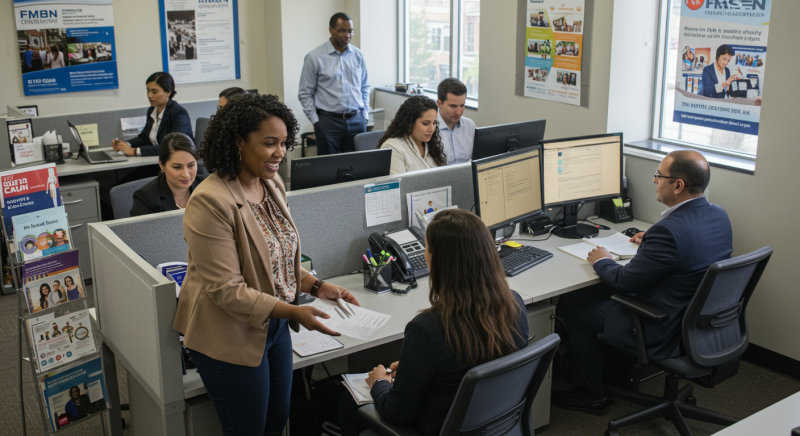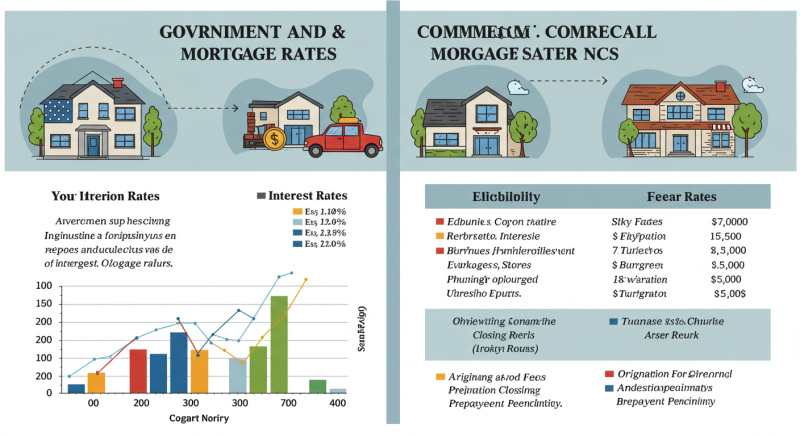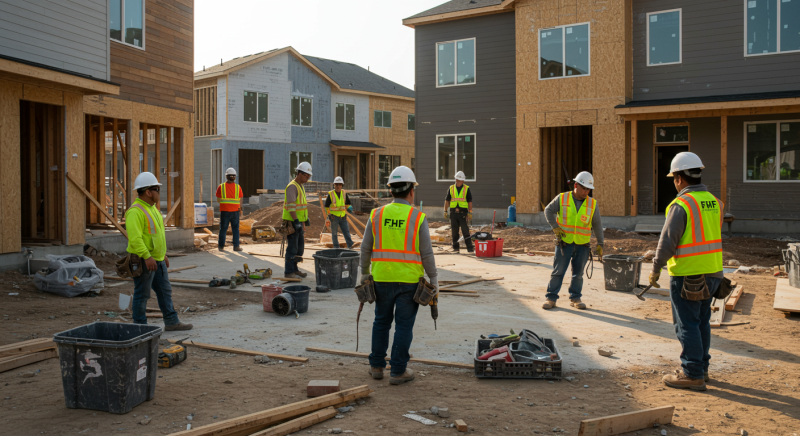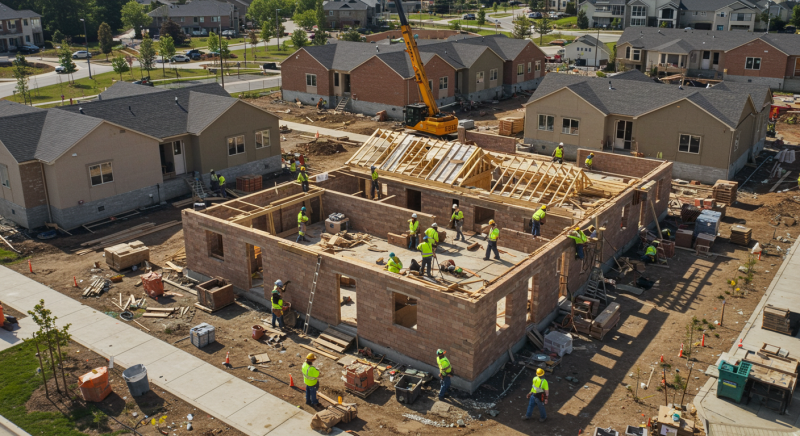Unlocking Homeownership Dreams: A Comprehensive Guide to Nigeria’s Government-Backed Mortgage Schemes
Imagine a young couple in Lagos, saving for years to buy their first home, only to watch property prices soar beyond reach. Their dream fades—until they discover a lifeline: government-backed mortgage scheme in Nigeria. For millions, these initiatives are more than policies; they’re bridges to dignity, stability, and generational wealth. This guide unpacks everything you need to know about Nigeria’s mortgage landscape, blending news updates with actionable steps to turn your homeownership dream into reality.
Key Takeaways
Nigeria’s government-backed mortgage schemes, spearheaded by institutions like the Federal Mortgage Bank of Nigeria (FMBN) and the Nigeria Mortgage Refinance Company (NMRC), offer affordable financing solutions with interest rates as low as 6%. Despite challenges like bureaucratic delays and limited awareness, over 100,000 homes have been financed since 2018, signaling progress in a country where only 10% own formal homes. This article explains eligibility, benefits, and how to apply, while addressing reforms needed for scalability.

What Are Government-Backed Mortgage Schemes?
For many Nigerians, owning a home feels like chasing a mirage in a desert of rising property prices and stagnant wages. Enter the government-backed mortgage scheme in Nigeria—a transformative initiative designed to turn this mirage into a tangible oasis. These programs are financial lifelines supported by federal institutions to bridge the gap between soaring housing demand and limited affordability. Unlike traditional bank loans, which often come with crippling interest rates (as high as 25%), government-backed schemes offer subsidized rates, extended repayment periods, and inclusive eligibility criteria tailored to empower low- and middle-income earners.
At its core, a government-backed mortgage scheme in Nigeria operates as a partnership between the state and citizens. Federal agencies like the Federal Mortgage Bank of Nigeria (FMBN) and the Nigeria Mortgage Refinance Company (NMRC) pool resources, set favorable terms, and collaborate with developers to reduce construction costs. The goal is twofold: to tackle Nigeria’s staggering 28-million-unit housing deficit and to provide a structured path to homeownership for millions trapped in the rent cycle.
How Do These Schemes Differ from Conventional Mortgages?
While commercial banks focus on profit-driven lending, government-backed schemes prioritize social impact. For example, the National Housing Fund (NHF)—a pillar of Nigeria’s mortgage ecosystem—allows contributors to borrow at a fixed 6% interest rate over 30 years, a stark contrast to the volatile rates of private lenders. Additionally, equity requirements are often relaxed. Under the NHF, beneficiaries need only contribute 2.5% of their monthly income for six months to qualify, making it feasible for civil servants, teachers, healthcare workers, and others in the formal sector.
The Role of Public-Private Partnerships
A government-backed mortgage scheme in Nigeria thrives on collaboration. Programs like the Family Homes Funds (FHF) partner with private developers to build affordable housing clusters, slashing costs through bulk construction and government subsidies. This model not only makes homes cheaper—units often start at ₦4.5 million—but also stimulates job creation in construction and real estate. For instance, the FHF has already generated over 1.5 million jobs while delivering 20,000 homes since its launch.
Who Benefits Most?
These schemes target Nigerians who earn too much to qualify for social housing but too little to afford market rates. Teachers, nurses, mid-level corporate workers, and even informal sector workers (through cooperatives) can now access financing previously reserved for the elite. Recent reforms, such as digitizing applications and expanding eligibility to freelance professionals, reflect efforts to democratize homeownership further.
Challenges and Innovations
While bureaucratic delays and funding gaps have historically slowed progress, innovations like the NMRC’s mortgage-backed securities are attracting private investment. By issuing bonds backed by mortgage portfolios, the NMRC has raised over ₦40 billion to refinance lenders, ensuring liquidity for more loans. Meanwhile, pilot projects using blockchain for land registries aim to combat fraud and speed up titling processes—a critical hurdle for mortgage approvals.
For deeper insights into eligibility and application steps, visit the FMBN’s official portal or explore the NMRC’s latest initiatives.
In essence, a government-backed mortgage scheme in Nigeria isn’t just a loan—it’s a social contract. It’s the government’s pledge to dismantle systemic barriers, one affordable home at a time, and a citizen’s gateway to stability, pride, and legacy. While the road ahead requires sharper reforms and broader awareness, these schemes remain the most viable key to unlocking Nigeria’s homeownership revolution.

Major Government-Backed Mortgage Schemes in Nigeria
Nigeria’s government-backed mortgage schemes are pivotal in addressing the nation’s crippling housing deficit, estimated at 28 million units . These initiatives, driven by federal institutions and strategic partnerships, aim to democratize homeownership by offering subsidized rates, flexible repayment terms, and innovative financing models. Below, we explore the most impactful programs reshaping Nigeria’s housing landscape.
1. National Housing Fund (NHF)
Managed by the Federal Mortgage Bank of Nigeria (FMBN), the NHF is the cornerstone of Nigeria’s government-backed mortgage scheme. Mandatory for all formal-sector workers earning above ₦3,000 monthly, it requires a 2.5% contribution of basic salary, pooled to provide loans at a fixed 6% interest rate over 30 years. Contributors can borrow up to ₦15 million to purchase, build, or renovate homes, with eligibility after just six months of consistent contributions.
Recent reforms have expanded access to informal workers through cooperative societies and introduced digital platforms for contributions and loan tracking. For instance, the NHF’s Diaspora Mortgage Loan allows Nigerians abroad to participate remotely, contributing 150–200 monthly for 12 months to qualify for loans up to ₦50 million at 9% interest. In 2024 alone, FMBN approved ₦71.5 billion in NHF loans, doubling its 2023 performance.
Key Features:
-
Interest Rate: 6% fixed (NHF), 9% (Diaspora NHF).
-
Tenure: Up to 30 years.
-
Eligibility: Formal/informal workers, diaspora Nigerians.
-
Recent Innovation: USSD code (*219#) for contribution tracking.
Learn more about NHF registration here.
2. Family Homes Funds (FHF)
Launched in 2016, the FHF is a public-private partnership targeting 500,000 affordable homes by 2030. As part of Nigeria’s government-backed mortgage scheme, it collaborates with developers to reduce construction costs, offering units from ₦4.5 million with mortgage rates below 10%. The FHF also prioritizes job creation, generating over 1.5 million construction jobs while addressing urban housing shortages.
In 2025, the FHF’s mandate expanded under the new ₦1 Trillion Housing Fund, backed by a 40-year World Bank loan at 1% interest and matched by private sector investments. This initiative aims to deliver mortgages at single-digit rates (as low as 6%) over 25 years, targeting middle-income earners in cities like Lagos and Abuja.
Key Features:
-
Interest Rate: Below 10% (existing), 6–12% (new fund).
-
Target: Low- to middle-income earners.
-
Impact: 20,000+ homes delivered since inception.
3. Rent-to-Own Initiatives
This government-backed mortgage scheme allows tenants to convert rent payments into equity, gradually owning homes without large upfront deposits. The FMBN’s Rent-to-Own program, for example, deducts rent directly from salaries, applying a portion toward the property’s purchase price. Similarly, the Ministry of Finance Incorporated Real Estate Investment Fund (MREIF) offers a 20-year mortgage at 12% interest, with a digital platform streamlining applications and property selection.
Key Features:
-
Equity Conversion: Rent payments count toward ownership.
-
Tenure: 10–25 years.
-
Accessibility: Targets urban workers and pensioners.
4. The ₦1 Trillion Housing Fund (2025 Launch)
A groundbreaking addition to Nigeria’s government-backed mortgage schemes, this fund combines a $654 million World Bank loan with private sector capital to provide low-interest mortgages. The first phase raised ₦250 billion, enabling loans at 6–12% interest over 20–25 years. Managed by ARM Investment Managers, it includes pension-backed financing, allowing contributors to use 25% of their Retirement Savings Account as equity.
Key Features:
-
Interest Rate: 6–12%.
-
Loan Range: ₦45 million to ₦200 million.
-
Focus Areas: Lagos, Abuja, Kano, and other high-demand cities.
5. Nigerian Mortgage Refinance Company (NMRC)
Though not a direct lender, the NMRC strengthens Nigeria’s government-backed mortgage ecosystem by refinancing banks through long-term bonds. This reduces lenders’ risk, enabling lower interest rates (9–15%) and extended tenures. Since 2023, NMRC has raised over ₦40 billion via mortgage-backed securities, injecting liquidity into the housing market.
Challenges and Progress
Despite these efforts, hurdles like bureaucratic delays, high commercial bank rates (15–25%), and land title fraud persist. However, digitization (e.g., FMBN’s automated NHF refunds) and reforms like the proposed National Mortgage Registry signal progress. For Nigerians, these government-backed mortgage schemes remain the most viable path to homeownership—a lifeline in a market where 90% of transactions are cash-based.
For eligibility details or to apply, visit the FMBN portal or explore the NMRC’s refinancing initiatives.
How does government-backed mortgage scheme in Nigeria Work? A Step-by-Step Guide
-
Check Eligibility
Most schemes require Nigerian citizenship, NHF registration, and proof of steady income. Formal sector workers (public/private) often qualify first. -
Register with the NHF
Visit an FMBN-accredited bank or online portal to start monthly contributions. -
Submit Application
Provide documents like employment letters, contribution history, and property details. Processing takes 6–8 weeks. -
Loan Disbursement
Funds are released directly to developers or sellers, ensuring transparency.

Why Consider a Government-Backed Mortgage?
-
Lower Interest Rates: 6% vs. 18–25% commercial rates.
-
Inclusive Policies: Informal workers can now participate through cooperative societies.
-
Job Creation: Schemes like FHF have generated 1.5 million construction jobs.
Challenges and Solutions
While bureaucratic delays and funding gaps persist, recent reforms like digitizing NHF applications and expanding public-private partnerships show promise. The NMRC’s mortgage-backed securities have also attracted ₦40 billion in private investments.
The Future of Housing in Nigeria
With the NMRC targeting 300,000 annual mortgages in 2025 and blockchain trials for land registries, Nigeria’s housing sector is poised for transformation—if corruption and policy inconsistencies are curbed.
Conclusion
Nigeria’s government-backed mortgage schemes are vital tools for social equity. While imperfect, they offer a tangible path to homeownership. By staying informed and proactive, you can leverage these programs to secure your family’s future.
FAQs
-
Can informal workers access these schemes?
Yes! Join a cooperative society registered with FMBN to qualify. -
What’s the maximum loan amount?
Up to ₦15 million, depending on income and property value. -
How long does approval take?
Typically 8–12 weeks post-documentation.
read more
